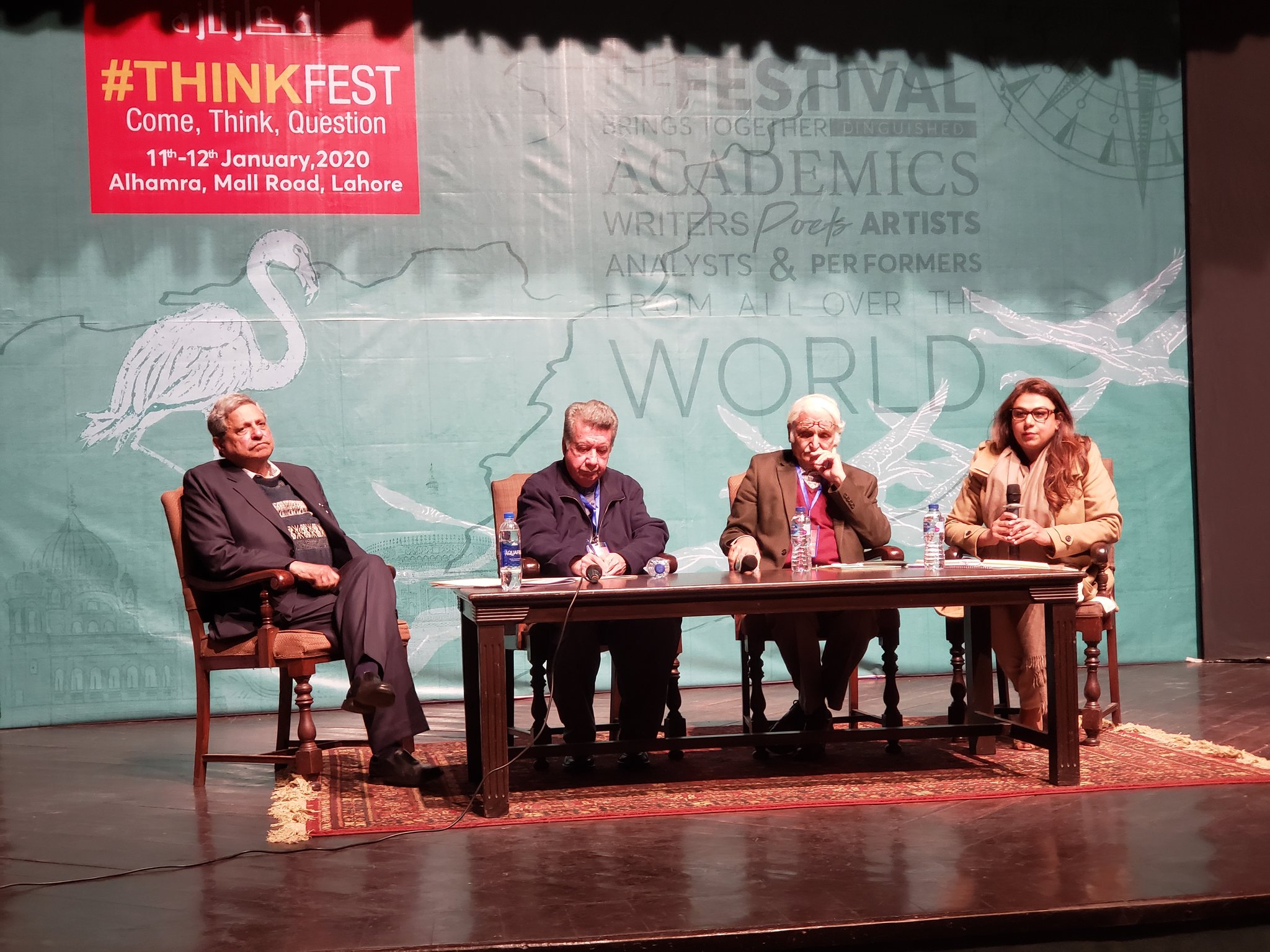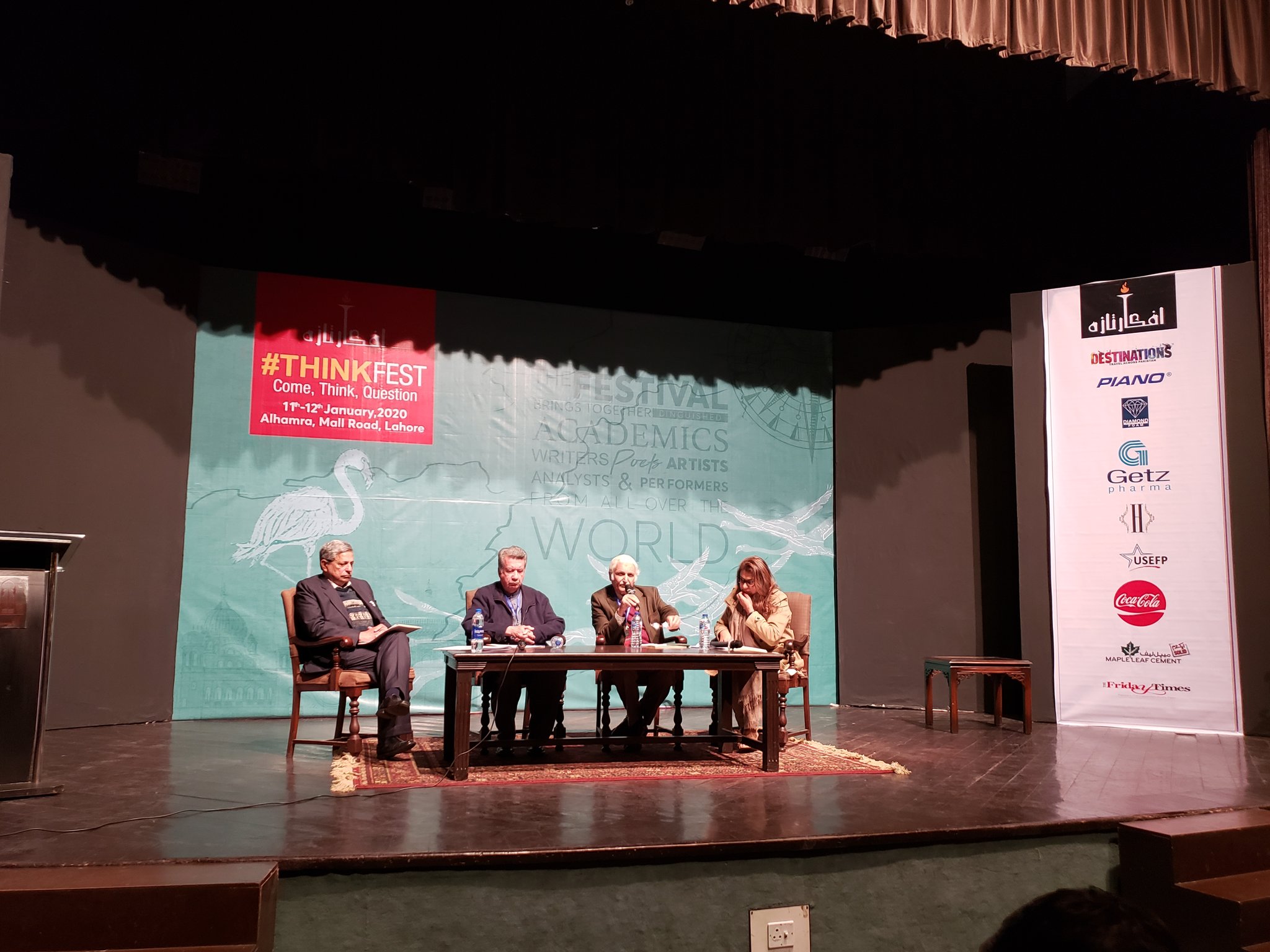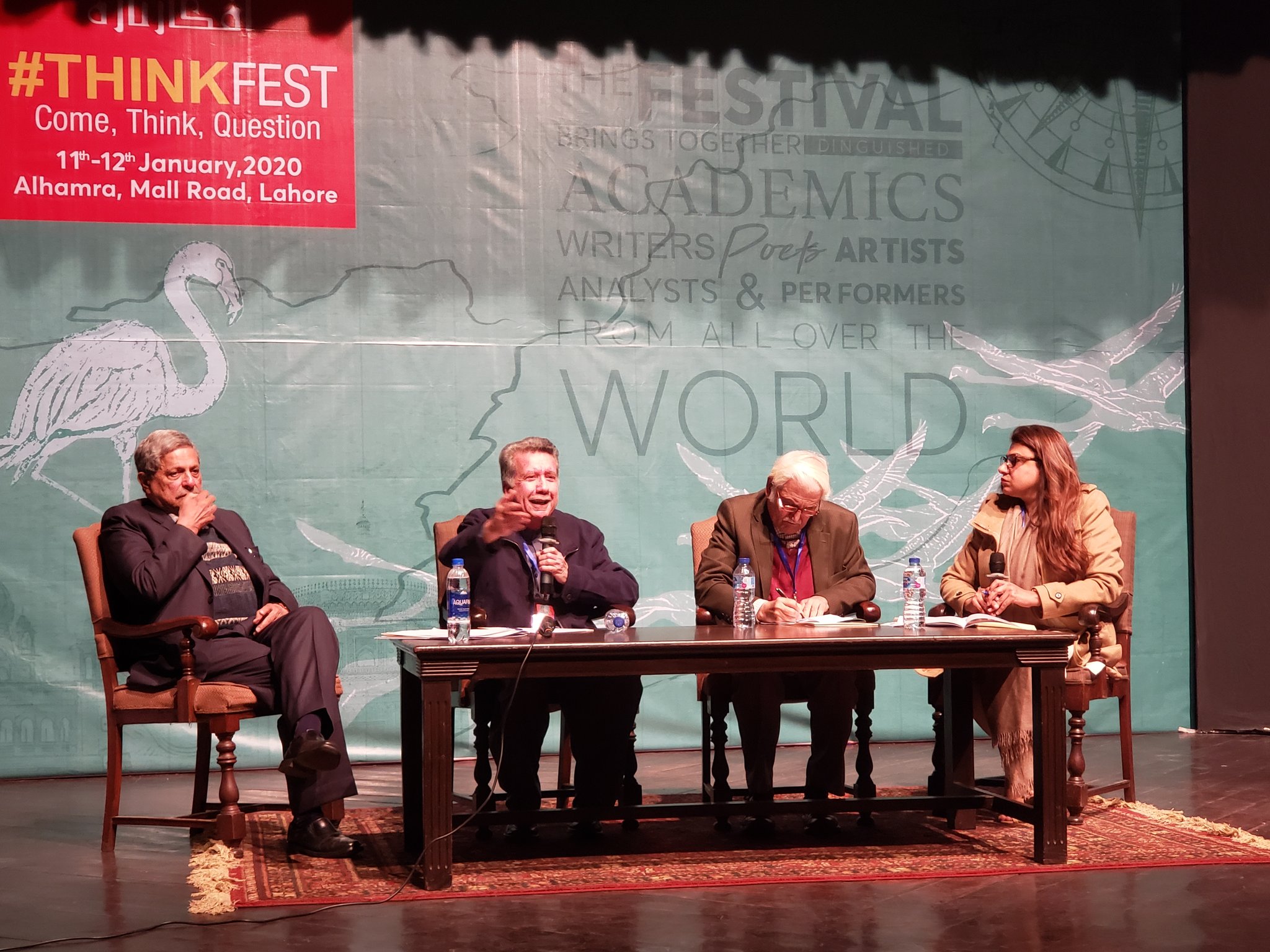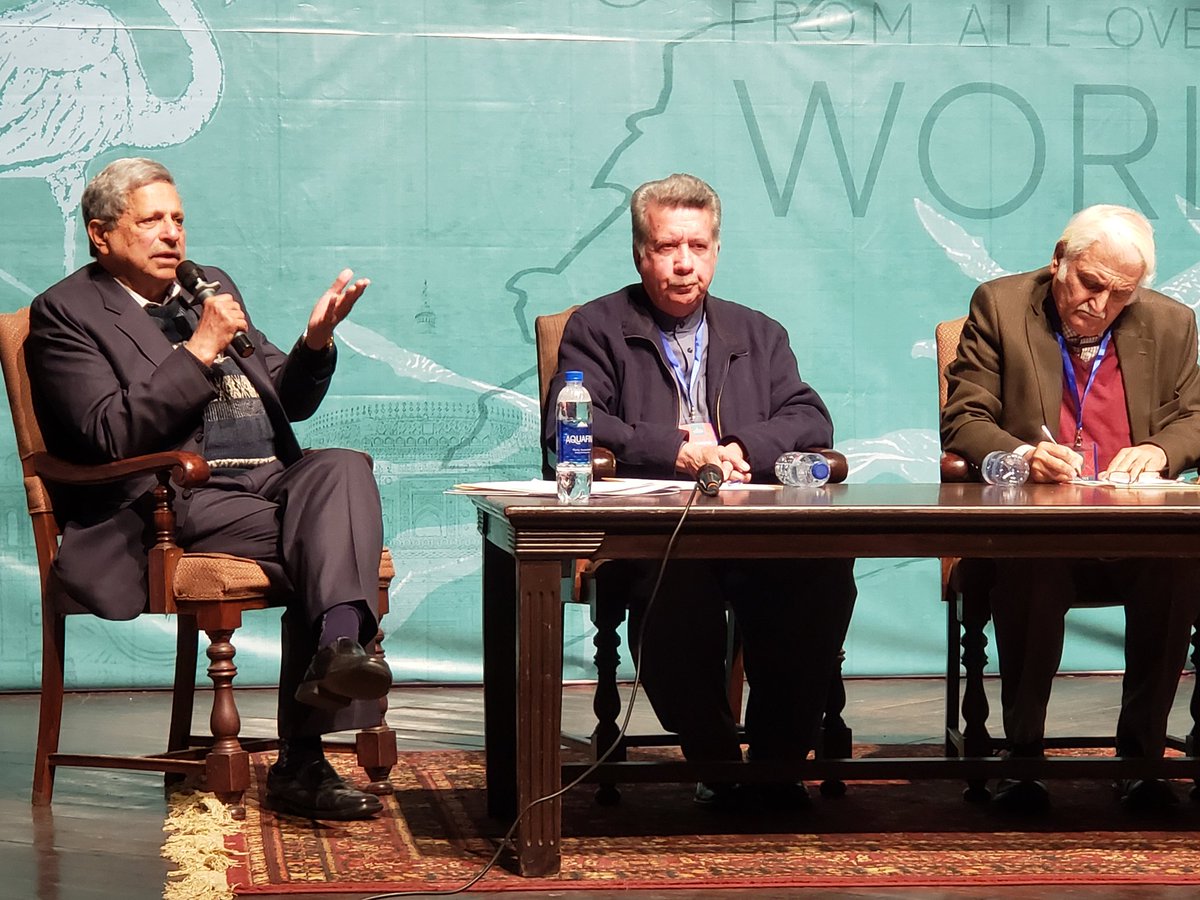Ms. Aasiya Riaz, Joint Director PILDAT, opened the panel discussion with the introduction of the panellists. Outlining the session, she said that it is often believed that a country cannot have true democracy until political parties are internally democratic; however, political scientists in turn argue that political parties can only be democratic when there is true and uninterrupted democracy in a country. This session has been organised to explore how leading political parties describe their state of internal democracy.

Mr. Farhatullah Babar, Secretary General, Pakistan Peoples Party Parliamentarian (PPPP), said that there was no chapter of internal democracy in 2006 Charter of Democracy (CoD) signed by PPP and PML-N leadership. However, it included the chapter of the relationship between the political parties and security agencies. He called for evolving a new charter of democracy between political parties of Pakistan to bring about internal party reforms and supremacy of democratic decisions instead of a one-man show. He said political parties of Pakistan are neither internally democratic nor able to take democratic decisions independently. The recent unanimous passing of the Pakistan Army Act, 2020 by the parliament served as a litmus test in this regard.

Mr. Babar said all matters should be discussed in the party’s Central Executive Committee, and the committee should only make decisions after detailed discussions. The decisions taken by this committee must be endorsed, and no single authority should have the power to reverse it. He was quoting the recent CEC meeting in which committee rejected the Pakistan Army Act, 2020 and suggested four amendments because it felt it was not according to instructions given by the Supreme Court of Pakistan. However, these amendments were withdrawn by the party leadership unilaterally within 24 hours without taking the CEC into confidence. These amendments were aimed at the supremacy of Parliament and empowering the Prime Minister not only to grant an extension to the chief of the army staff (COAS) but also to dismiss him, he said. He remarked that these types of decisions weakened party’s internal democracy also along with democracy in the country. “Have parties become subservient to the party leaders, and there is no democratic process?” he said.
Answering a question from Ms. Riaz on the extent to which external forces influence internal democracy in political parties, Former Senator, Mr. Afrasiab Khattak said that the relationship between de jure power and de facto power in Pakistan is imbalanced. External forces have played a pivotal role in disrupting democracy in Pakistan; therefore, political parties are weakening, and de facto is gaining more power. He said, one of the reasons for weak political parties is personality-based politics; certain families rule the parties and are glorified for presenting ‘sacrifices’ for a political cause. He stressed that political parties should instead bring about reforms, serve as institutions and conduct policy research via think tanks. He said external forces also prefer a weakened democracy in the country because it is easier to deal with a single power source, for instance, the United States of America, who likes democracy in itself but has supported undemocratic governments in Pakistan.

Mr. Khattak said the country was currently facing a hybrid martial law in contrast with former dictator Gen Zia Ul Haq’s hybrid democracy. He quoted the example of election for Chairman Senate where 60 senators were against the former Senate Chairman but when votes polled these numbers were reduced.
On a question from Ms. Riaz on whether the mindset of top political leaders holding to power in the party as sole decisionmakers affect internal democracy, senior Lawyer and one of the founders of Pakistan Tehreek-i-Insaf (PTI), Advocate Hamid Khan said that in his party initially, Prime Minister Imran Khan was ambitious to hold party elections through a true democratic process, but later he too was convinced by some forces within the party that these ‘things’ were irrelevant and ‘ready-made’ options were available. He remarked that these people failed the vision of the party and injected fear in the mind of Mr. Imran Khan that party elections would divide the party. He admitted that it is a reality, but we have to find a solution to this. He said in our first intra-party elections the leaders who lost the election did not accept results and levelled charges of corruption against the winners.

Mr. Hamid Khan said an external body is needed to conduct party elections because party elections are too difficult to conduct and parties don’t have the will to deal with the consequences. On holding the polls, he said lawyers and lawyers organizations helped us to conduct party elections otherwise it was too hard to pull off.
Mr. Khan said it is true that party leaders in our country think the vote bank belongs to them and the party would collapse without them. Mr. Khan said promoting internal democracy is key to strengthening democracy in the country.
Speaking of his experiences, Mr. Farhatullah Babar said although the PPP hold party elections, these are not representative because the voter turnout in these elections is meager. “I know that these elections in the party are not truly democratic,” he added. He held that this weakens parties; therefore, we don’t find any resistance from within parties against external forces who intervene. He said, to strengthen democratic culture and youth participation in political parties systematically, it is essential to empower Local Governments so young leaders can be nurtured at the grassroots level.
In his closing remarks, Mr. Khattak said that continuity of democratic process is also vital for strengthening political parties and ultimately the Parliament. He added that due to the weaknesses of party heads who want more powers to protect themselves from accountability, political parties are becoming irrelevant as evident from the vote for the Pakistan Army Act, 2020 in the Parliament. Mr. Khattak held other social movements in the country are rising to represent masses today; an example of such a movement is PTM which conducts huge rallies across the country despite a media blackout.
Mr. Hamid Khan, while answering a question from the audience said, we have created obstacles in promoting democratic culture in the country by banning students unions. He said we had produced various political leaders who were part of these unions. Union elections in educational institutions were creating awareness about the election processes and other democratic norms when Gen. Zia ul Haq banned these unions. He stressed that decision making in political parties should flow from the bottom to the top to truly represent the will of the workers. Additionally, political parties need to be institutionalized with a working think tank and grasp on policymaking to tackle upcoming challenges.






